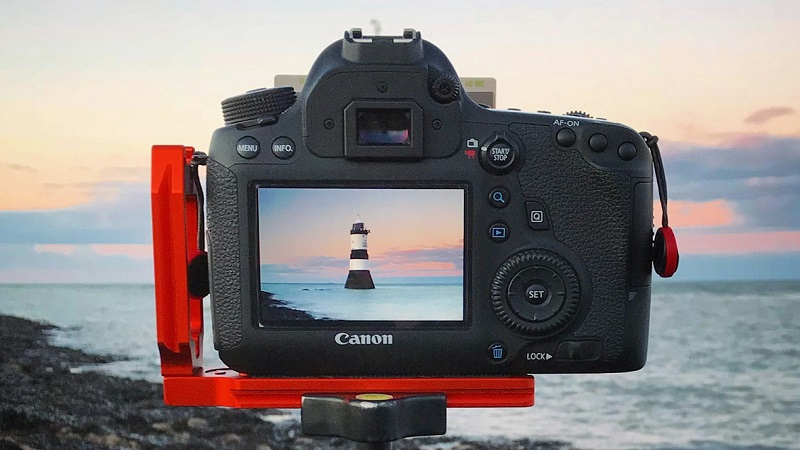In this detailed guide, we explain how to protect your digital camera against its natural predators. We also highlight some of the most important things to avoid while using a camera.
A lot of things can damage your digital camera. They can suck its life within seconds rendering it completely useless. However, you can protect your camera by taking a few measures. One of these measures includes identifying potential threats to your camera and how to keep them at bay. Similarly, you need to be a little careful and patient and your camera will serve you for a long time. Maintaining a digital camera is never enough and therefore, you must not let it get damaged in the first place.
How to Protect Your Digital Camera?
The following are some of the things that can naturally damage your camera and how to avoid them.
1. Water/Moisture
Moisture is the eternal nemesis of a digital camera. It invades your camera in different ways such as water that will instantly destroy the gear. Dropping cameras in the water is quite common. However, there is an easy way to keep the camera out of water. It is to use your camera’s neck or wrist strap. Also, learn how to attach the camera strap the right way to ensure full protection.
Condensation, on the other hand, is a more subtle enemy. It mostly comes into play when you move your camera from cold to hot temperatures and vice versa. For example, condensation can damage your gear while moving from a cold to a hot place. Putting silica gels in your camera bag will absorb the moisture. Similarly, you can pack your camera in airtight bags or containers. However, it is not feasible especially when you have a large camera. It is better to warm your camera slowly and naturally but is easier said than done. Finally, keep wiping your camera to clear moisture in humid environments.
2. Dust
Dust is one of the biggest enemies of a digital camera. Just like condensation, it is quite a subtle attacker but extremely damaging. It can wreak havoc on your camera particularly when it settles on your camera’s sensor or finds its way to inner parts.
The first thing you should do is to clean your camera every day. Do not change your lenses in a dusty place or during sandstorms. Furthermore, always carry your camera in a sealed bag.
You must also learn how to clean the sensor of a DSLR camera if you have one. Similarly, you can also get it professionally cleaned if your sensor has some kind of marks. They are usually visible at smaller apertures. Therefore, use the smallest aperture and shoot at a white ceiling or wall to test your camera.
3. Salt
You can take some incredible shots at a beach. However, it is also where your camera can easily get damaged. It is home to many digital camera predators, the most important of which is salt. It can easily creep into your camera’s body and cause numerous problems.
Wipe or clean your camera at least once a day to keep the salt at bay or minimize its impact. This is not only true for beaches but for all the salty places.
Using UV filters for DSLR cameras further protects your camera from salt and other elements. Try not to open your cameras to change batteries or lenses at such places. Put your camera in your camera bag when it is not in use. Find a safe spot for shooting on windy days or in sea spray.
4. Sand
The thing cameramen are most frightened of is the sand. It can annihilate your camera if it manages to get into it. Sand can quickly destroy the moving parts of the camera or at least make them unserviceable due to its gritty and abrasive nature. If nothing more, it will leave a lot of scratches on the glass.
You can’t do much to protect your camera from sand. The only practical solution is not going to sandy places with your camera. However, it is not feasible from a photographer’s point of view. So, what can you do to avoid sand while taking photos?
Special cleaning brushes and clothes can help you remove those strains to some extent. Similarly, always put your camera in sealable bags while traveling.
Just like salt and dust, never change your lenses, batteries, or memory cards when it is windy or when people are throwing things away. These are the moments when the sand will mostly sneak into your camera. It is better to change the parts inside a hut or a safe place before you hit the beach or a desert.
5. Bumps and Drops
Thousands of people lose their cameras permanently because of bumps and drops. Cameras are delicate objects and therefore, you should be very careful while using them. Some latest cameras come with shockproof bags but most cameras do not. And what if you have an old camera?
Always use a padded casing or bag when you are not shooting. Be very careful while handing your camera to another person. Never forget where you put your camera to avoid accidental bumps. Many content insurances also cover accidental damages and therefore, you should only go for them. You must use your common sense and your camera will never go out of business.
6. Theft and Robberies
Thieves and robbers are also looking out for expensive electronics including your camera. They will snatch it away when you least expect it. It may be quite shocking and frustrating for you.
What you can do is make your camera inaccessible to others. Similarly, your camera bag should not look like a camera bag if possible.
Always keep your camera close to your body in risky places such as markets, concert halls, stadiums, beaches, etc. Fasten your bag tightly and keep it zipped. It is recommended to have your camera in front of your body in these places. Do not travel with your camera all the time and get it insured as well.
7. Insect Repellents/Sunscreens
Sunscreens and insect repellent can protect you from elements of nature such as insect bites and the Sun. However, they can be extremely dangerous for your camera. Insect repellents and sunscreens contain harmful chemicals and oils respectively that you do not want to get into more delicate parts of your gear.
You can easily minimize the impact of these things. Do not apply them on the parts of your body that often come in contact with your camera such as your hands. Obviously, you apply sunscreen and repellents with your hands. You must always clean them in fresh water and your camera will remain safe and sound. Similarly, try to clean your camera as soon as possible if it does get oily.
Some people put their sunscreens and repellents in their camera bags. It is a cardinal sin that you should avoid at any cost. You may have to carry an additional bag but it is better than permanently damaging your camera. Just like the camera, put the liquids in a sealed bag as well.
8. Don’t Leave the Camera in a Car
First of all, your camera can get stolen if you leave it in your car. Secondly, heat or cold can fry or freeze its components depending on the temperature. The image sensor in particular is susceptible to elements. Your camera will be at nature’s mercy and anything can happen to it. For example, the sensor can malfunction or the LCD may stop working among several other issues.
Also Read: How To Reset GoPro Hero 10 Black?
Frequently Asked Questions
What can damage a digital camera?
A lot of things can damage a digital camera such as moisture, sand, dust, salt, bumps and drops, and sunscreens and repellents. Similarly, your camera can get stolen or it is components can freeze or fry if you leave it in the car. Overall, shooting in humid, sandy, and salty conditions can have adverse effects on your camera.
What should you not do with your camera?
The following are some of the things you should never do with your camera.
- Use it while drunk because you can easily drop it.
- Use it one-handed. It not only results in blurry photos but also increases the chances of bumps and drops.
- Do not leave your camera in your car.
- Do not turn it off or on frequently as it will quickly drain the battery.
What reduces camera quality?
As mentioned above, dust, sand, moisture, and even fingerprints can reduce the quality of your camera. They cannot only result in blurry images but can permanently damage your camera as well. Therefore, you should always have a microfiber cloth or special cleaning brush to regularly wipe or clean the camera. You should never use your shirt for cleaning as it does more harm than good.
Can digital cameras get wet?
Unfortunately, most DSLRs and other digital cameras are not waterproof. Some of them are dustproof, shockproof, and waterproof. However, you should never use any digital camera in a heavy shower. Similarly, make sure your camera never falls into the water or has a heavy bump or drop.
Final Thoughts
With this, we conclude our guide on how to protect your digital camera. We hope you can better prepare yourself and keep your camera safe regardless of the situation or place.

